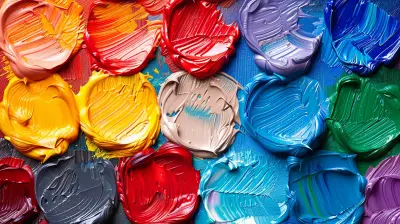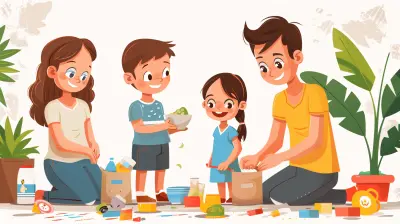Simple Chores Perfect for Preschoolers to Try
19 October 2025
Let’s be honest—raising kids is both a whirlwind and a wonderland. One moment you're mopping up spilled juice, the next you're cheering them on as they tie their shoes for the first time. Preschoolers, with all their energy and curiosity, are actually little helpers in disguise. If you’re wondering how to channel that energy into something productive, you’ve landed in the right place.
Chores might sound like a grown-up word, but for toddlers, they can be fun, empowering, and even a way to bond. So, let’s dive into some simple chores perfect for preschoolers that not only help you around the house but also teach your little one responsibility, independence, and the joy of being part of a team.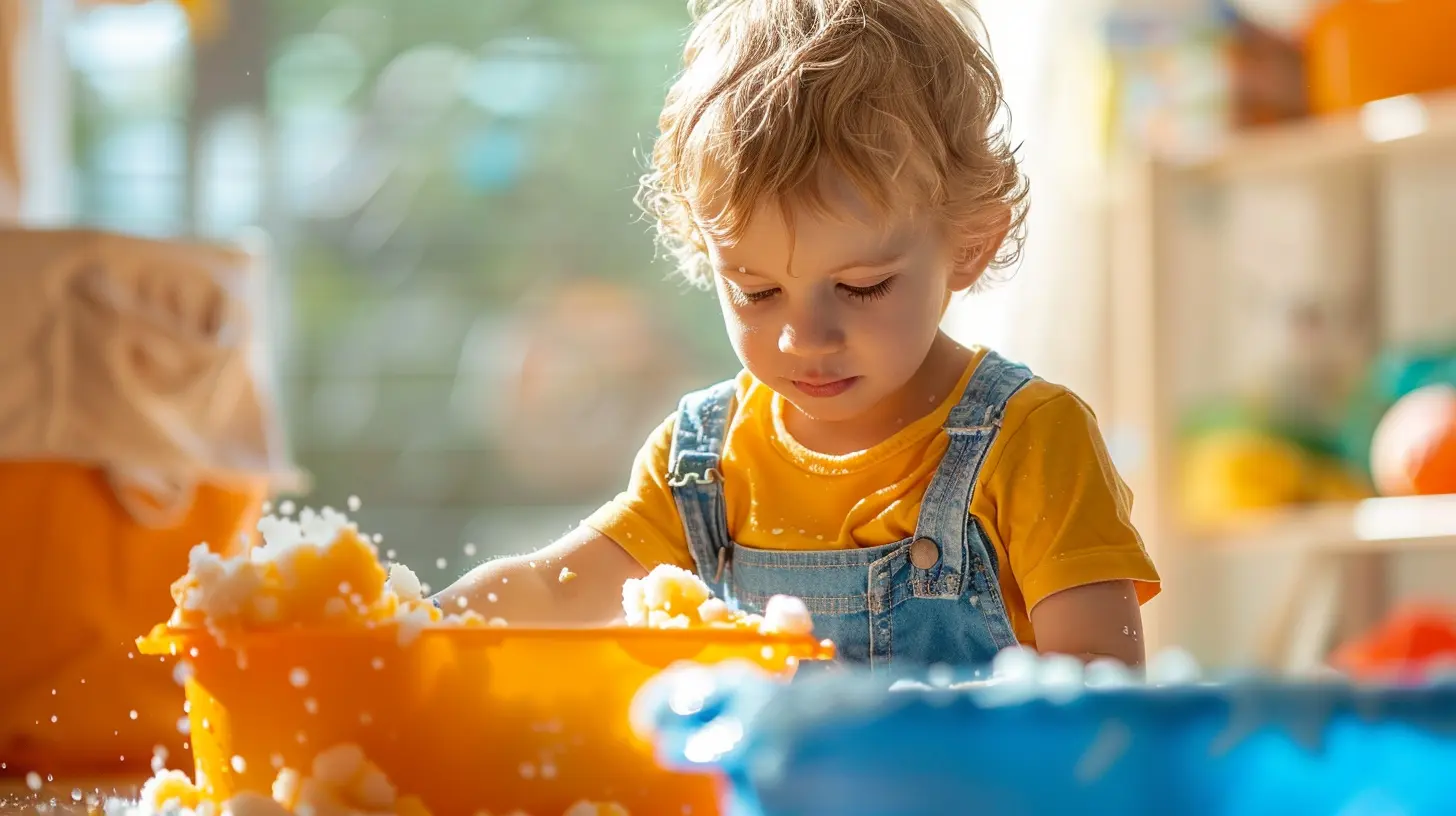
Why Should Preschoolers Do Chores?
Before we roll up our sleeves, let’s answer the big question: why bother giving chores to such tiny humans? Isn’t cleaning up their toys enough?Well, it’s more than just the mess. Preschoolers are at a golden age for learning life skills. Their brains are like sponges, and they’re eager to mimic what they see. When you give them age-appropriate chores, you’re reinforcing good habits early on. Plus, completing small tasks gives them a sense of accomplishment—like leveling up in the video game of life.
Chores help develop:
- Motor skills (like picking up toys or wiping a table)
- Cognitive skills (understanding order and sequences)
- Emotional growth (feeling confident and needed)
You don’t need to hand them a mop and expect sparkling floors. Start small. Think mini tasks that match their age, abilities, and yes...attention span.
How to Introduce Chores to Preschoolers (Without Tears)
Let’s be real. You’re not going to say, “Hey, time to do chores!” and see your preschooler jump for joy (unless you’ve got a super-rare unicorn child). But you can make chores sound exciting.Here’s how to ease your little one into the world of household tasks — tantrum-free.
1. Make It a Game
Why fold laundry when you can play the “Sock Matching Championship?” Turning chores into games can spark more interest than asking them to “help.” You can even use timers to “race the clock” or sing a silly clean-up song.2. Give Them “Big Kid” Titles
Kids love feeling grown-up. Try saying, “You’re the official Dish Collector today,” or “You're in charge of the Toy Department.” Titles make them feel important and responsible.3. Model First, Then Guide
Show them how it’s done before handing over the job. Whether it’s watering plants or stacking plastic plates, watching you do it gives them a clear visual of what’s expected.4. Praise Efforts, Not Just Results
Don’t expect perfection. It’s all about effort. A crookedly made bed deserves a “Wow, you did that all by yourself!” more than a critique.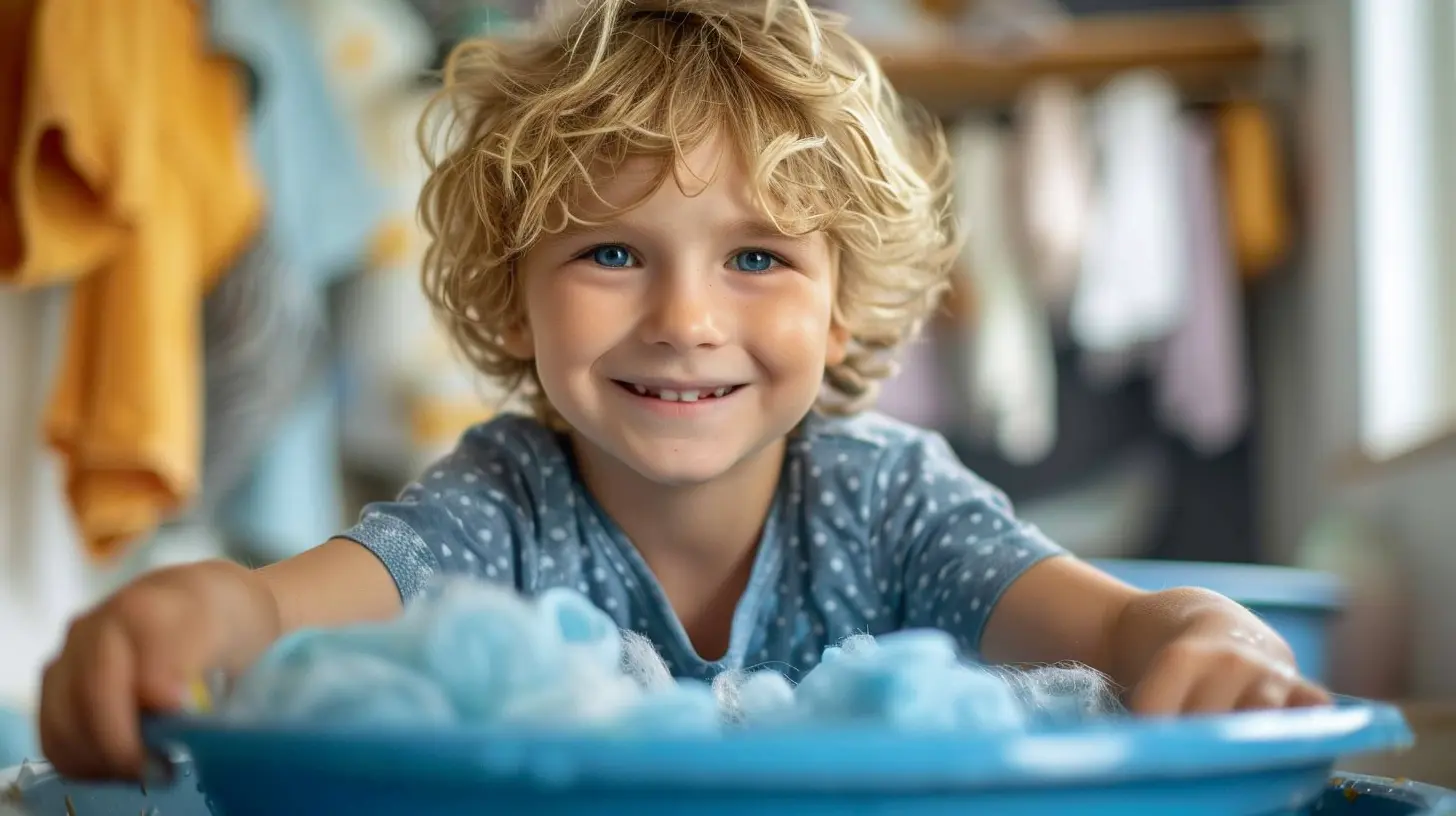
Simple Chores Preschoolers Can Try (and Actually Enjoy)
Alright, time for the good stuff. Let’s break down the types of chores you can introduce to your preschooler. These are safe, simple, and tailored for kids aged 3–5.1. Setting the Table
Let them lay out napkins, spoons, or plastic cups. You can make it a fun sorting game—forks on the left, cups at each plate, and so on. It teaches order and responsibility.Pro Tip: Keep dinnerware in a low drawer so they can access it themselves.
2. Feeding Pets
Have a dog or a goldfish? Preschoolers love routines, and feeding a pet gives them a daily task to “own.” Just pre-measure the food to keep it simple and safe.3. Watering Plants
Hand them a small watering can and guide them to indoor plants or garden flowers. It’s a relaxing chore that teaches them to care for living things.4. Sorting Laundry
Who thought laundry could be fun? Ask them to sort colors, match socks, or hand you clothes they recognize. It’s like a puzzle, and it sharpens their sorting and matching skills.5. Cleaning Up Toys
This one’s a classic for a reason. Kids who put away what they played with are learning ownership. Make it easier by labeling bins with pictures—blocks here, cars there.6. Dusting Low Surfaces
Hand them a soft cloth and let them dust the bottom shelf or a side table. They’ll feel useful, and you’ll get a bit of help with the cleaning. Win-win!7. Wiping the Table
Post-snack time? Give them a wet cloth and ask for help wiping the table. Make it a “germ-fighting mission” to keep things fun and purposeful.8. Carrying Light Grocery Items
Coming back from a grocery run? Let them carry the cereal box or a bag of bananas. It gives them a sense of teamwork and builds physical strength.9. Putting Clothes in the Hamper
After changing clothes, guide them to toss their clothes into the hamper like a basketball shot—points if it goes in! It's fun and builds routine.10. Making Their Bed (With Help)
Keeping it real: it won’t look Pinterest-worthy. But pulling up sheets and fluffing pillows is a great place to start. Over time, they’ll get better at it.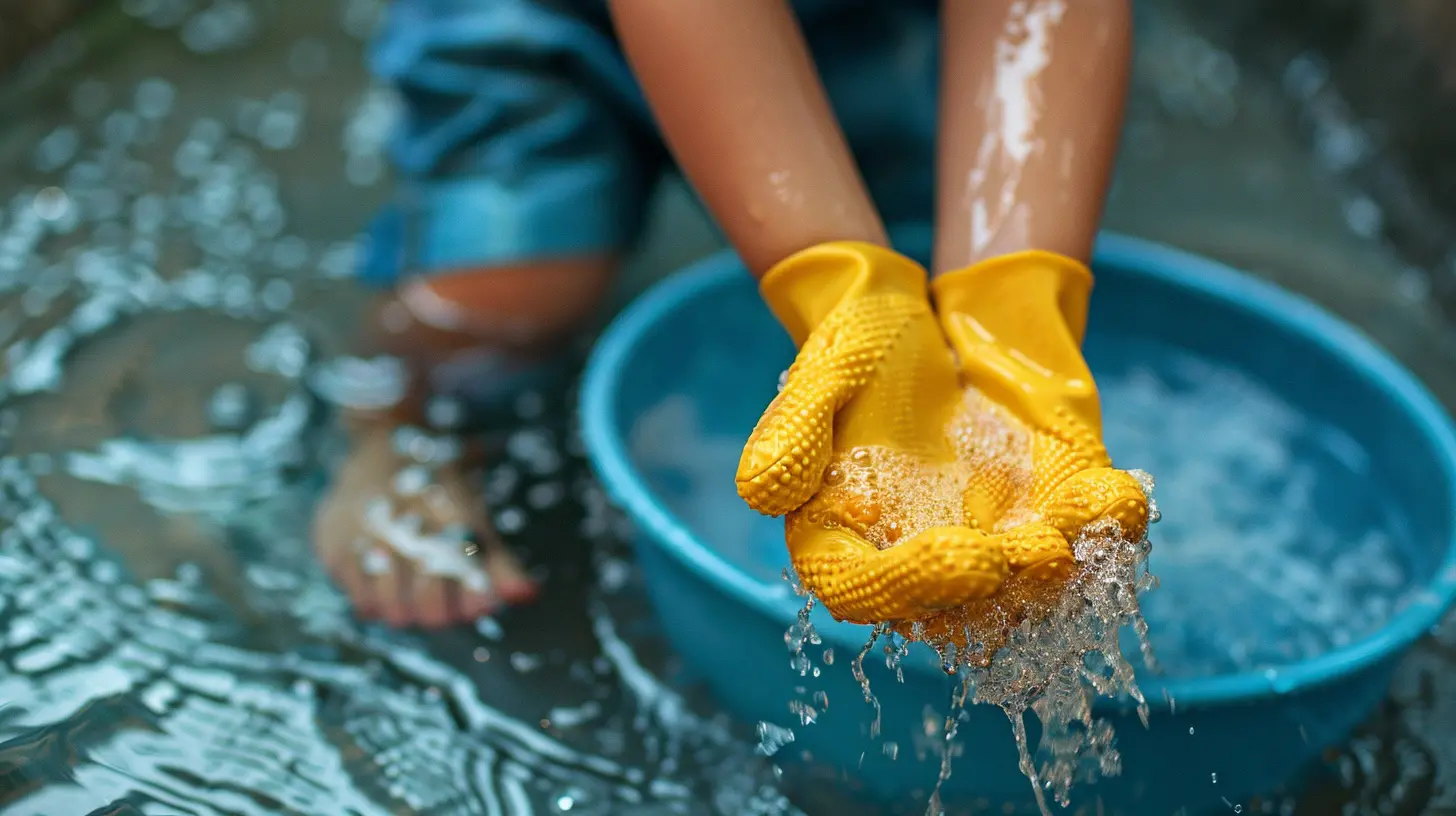
Tips for Success Without Stress
Ready to get to it? Here are a few nuggets of wisdom to keep things smooth:1. Keep It Consistent
Habits stick when they’re regular. Set chore times each day—even just 10 minutes. Kids thrive on routines.2. Be Patient (Like...Really Patient)
It’ll take longer (a lot longer) when you let your preschooler help. But it’s not about speed—it’s about teaching and bonding. Deep breaths!3. Use Visual Charts
Sticker charts are magical. Every time your child completes a chore, let them stick a star or smiley face. These visuals help track progress and feel super rewarding.4. Avoid Punishment Chores
Never use chores as punishment. That makes them feel like a bad thing. Instead, frame them as a way to be a “big helper.”5. Celebrate Efforts
Was the sock drawer a mess? Who cares! Praise is powerful. Say things like “You tried really hard today!” or “Your help made dinner time so much faster!”When They Resist (Because They Will)
No sugar-coating it—some days, your child will just not be into it. That’s okay. Don’t push too hard. Skip the battle and try again later.But also, don’t cave every time. If you want to build habit and responsibility, the key is gentle persistence.
Try asking:
- “Do you want to pick up the cars or the blocks first?”
- “Should we race to see who does theirs faster?”
- “Can you show me how fast you can water the plant today?”
Give choices instead of commands. It empowers without creating standoffs.
Long-Term Benefits You’ll Thank Yourself For Later
Let’s be honest: the goal isn’t a perfectly dusted table. It’s raising a confident, capable kid who knows how to pitch in. Chores lay the foundation for that.By involving preschoolers now, you’re planting seeds of:
- Self-discipline
- Self-esteem
- Cooperation
- Independence
These are the roots of strong character. And they start with little moments—like folding a towel or feeding the cat.
Final Thoughts
Preschoolers are little humans with big hearts. They want to be part of your world. Giving them chores isn't about getting the job done faster — it’s about connection, growth, and teaching them that every hand in a home contributes.So next time you’re wiping spills or folding the laundry, look beside you. There might be a tiny helper ready to jump in... if you let them.
Let’s raise helpers, not just watchers. One sock, dish, or toy at a time.
all images in this post were generated using AI tools
Category:
Parenting PreschoolAuthor:

Maya Underwood
Discussion
rate this article
1 comments
Avianna Mahoney
Loved this article! It's so encouraging to see how simple chores can teach little ones responsibility while having fun. My preschooler loves helping out, and it’s such a great way to bond. Can't wait to try these ideas! Thank you!
October 23, 2025 at 3:28 PM

Maya Underwood
Thank you so much for your kind words! I'm glad you found the article helpful, and I hope you and your preschooler enjoy the activities together!

